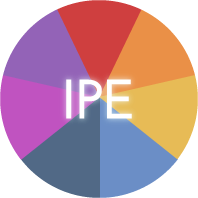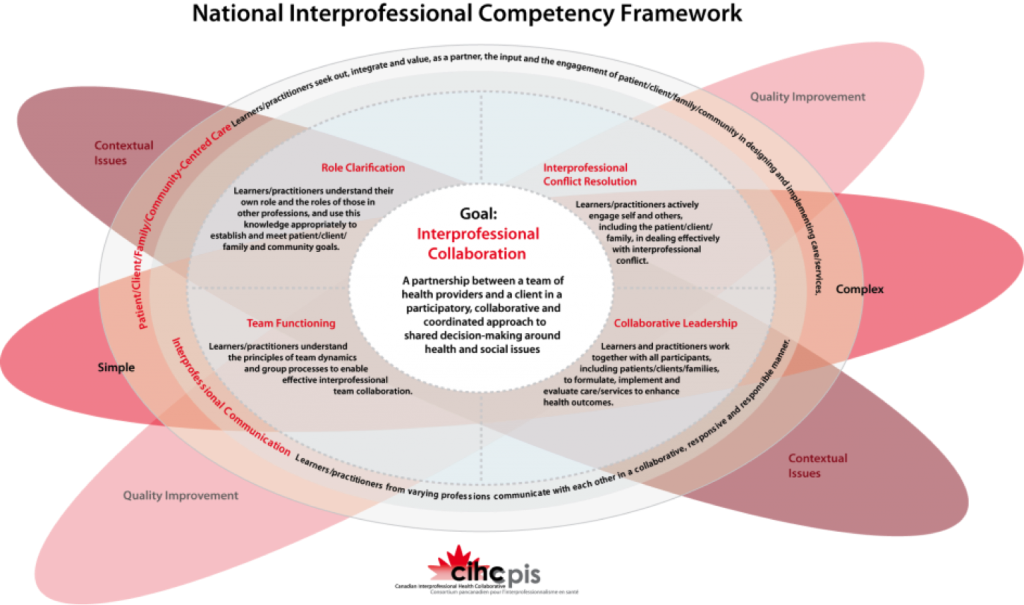
Interprofessional Collaboration (IPC) involves “working together with one or more members of the health team who each make a unique contribution to achieving a common goal, enhancing the benefit for patients. It is a process for communication and decision making that enables the separate and shared knowledge and skills of different care providers to synergistically influence the care provided through changed attitudes and behaviors, all the while emphasizing patient-centered goals and values.” (Health Canada, 2010)



